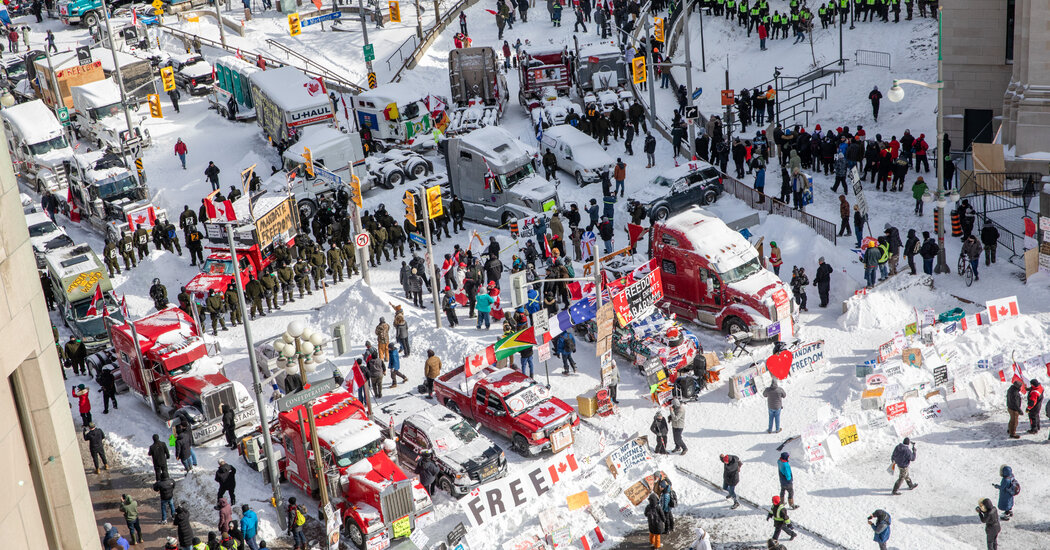Two main architects of protests that gridlocked Canada’s capital for weeks were found guilty on Thursday in one of the last legal cases stemming from the demonstrations that convulsed the country and disrupted billions of dollars in trade with the United States.
A judge convicted the protest’s top organizers, Tamara Lich and Chris Barber, in an Ottawa courthouse not far from Parliament Hill, the site of a four-week blockade in 2022 that saw demonstrators park long-haul trucks on major streets to protest pandemic-era mandates.
Ms. Lich and Mr. Barber were found guilty of mischief, according to The Canadian Press, a national newswire agency, an offense involving damaging public property or disrupting people from using public property and carries a maximum 10-year prison penalty. Ms. Lich and Mr. Barber will be sentenced at another hearing.
The two were acquitted of other charges, including obstructing justice, intimidating the public and counseling others to commit offenses, according to the Justice Center for Constitutional Freedoms, a nonprofit that has helped in Mr. Barber’s defense.
The group has criticized the length of the proceedings against the two defendants.
“If Tamara Lich and Chris Barber had played a leadership role in organizing protests against racism, transphobia or climate change, they would not have faced 45 days of trial over a period of 31 months,” John Carpay, the center’s president, said in a statement.
The protests were known in Canada as the “Freedom Convoy” and attracted a groundswell of support, particularly from the Western province of Alberta.
It began as a grass-roots movement by truckers who faced vaccination requirements to cross the U.S. border. Mr. Barber owns a trucking company in Swift Current, Saskatchewan, while Ms. Lich describes herself as a political activist from Medicine Hat, Alberta, who helped raise funds to support the effort.
“I love Canada, and no matter the outcome today, that will never change,” Ms. Lich said in a post on X on Thursday morning before the verdict.
Former Prime Minister Justin Trudeau invoked a rare emergency order that allowed the authorities to take stronger measures against the protesters, including freezing their bank accounts and deploying immense police resources in Ottawa.
Pat King, another key organizer, was convicted of mischief last year and was ultimately sentenced to three months of house arrest.
Similar blockades formed at border crossings in cities like Windsor, Ontario, across from Detroit, preventing trucks from carrying commerce across the bridges that link the two cities.
At another obstructed border crossing in Coutts, Alberta, the police found a cache of weapons and two men were later sentenced to six years in prison for firearm possession and other charges.
